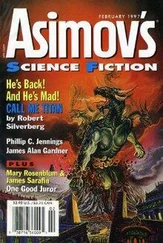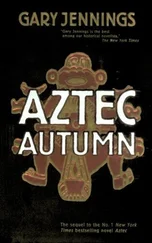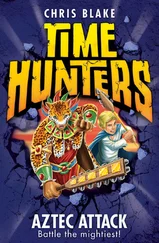Gary Jennings - Aztec
Здесь есть возможность читать онлайн «Gary Jennings - Aztec» весь текст электронной книги совершенно бесплатно (целиком полную версию без сокращений). В некоторых случаях можно слушать аудио, скачать через торрент в формате fb2 и присутствует краткое содержание. Жанр: Старинная литература, на английском языке. Описание произведения, (предисловие) а так же отзывы посетителей доступны на портале библиотеки ЛибКат.
- Название:Aztec
- Автор:
- Жанр:
- Год:неизвестен
- ISBN:нет данных
- Рейтинг книги:4 / 5. Голосов: 1
-
Избранное:Добавить в избранное
- Отзывы:
-
Ваша оценка:
- 80
- 1
- 2
- 3
- 4
- 5
Aztec: краткое содержание, описание и аннотация
Предлагаем к чтению аннотацию, описание, краткое содержание или предисловие (зависит от того, что написал сам автор книги «Aztec»). Если вы не нашли необходимую информацию о книге — напишите в комментариях, мы постараемся отыскать её.
"Anyone who reads, anyone who still lusts for adventure or that book you can't put down, will glory in Aztec."--Los Angeles Times
Aztec
Aztec
Aztec — читать онлайн бесплатно полную книгу (весь текст) целиком
Ниже представлен текст книги, разбитый по страницам. Система сохранения места последней прочитанной страницы, позволяет с удобством читать онлайн бесплатно книгу «Aztec», без необходимости каждый раз заново искать на чём Вы остановились. Поставьте закладку, и сможете в любой момент перейти на страницу, на которой закончили чтение.
Интервал:
Закладка:
In brief, from about the age of seven onward, I began to lose my sight. It made me something of a rarity, and not in any enviable sense. Except for those few born blind, or those who became so from a wound or a disease, almost all our people possess the keen eyesight of eagles and vultures. My decreasingly clear vision was a condition practically unknown among us, and I was ashamed of it, and did not speak of it, and tried to keep it my own hurtful secret. When someone would point and say, "Look there!" I would exclaim, "Ah, yes!" though not knowing whether I should goggle or dodge.
The dimness did not come upon me all at once; it came gradually, but inexorably. By the time I was nine or ten, I could see as clearly as anyone, but only to a distance of perhaps two arms' length. Beyond that, the outline of things began to blur, as if I were seeing them through a transparent but distorting film of water. At a more considerable distance—say, looking from a hilltop across a landscape—all the individual outlines blurred so much that objects mingled and merged, and a landscape was to me no more than an eccentrically patterned blanket of amorphous smears of color. At least, in those years, with a clear visual field of two arms' length, I could move about without falling over things. When bidden to fetch something in one of the rooms of our house, I could find it without having to grope.
But my scope of vision continued to diminish, down to perhaps one arm's length of clarity before I reached my thirteenth birthday, and I could no longer pretend well enough for it to go unnoticed by others. For a time, I suppose my family and friends thought me merely clumsy or slipshod or maybe dimwitted. And at that time, with the perverse vanity of boyhood, I would rather have been thought a lout than a cripple. But it inevitably became obvious to everyone that I was lacking in the one most necessary of the five senses. My family and friends behaved variously toward this suddenly revealed freak among them.
My mother blamed my condition on my father's side of the family. It seems there was once an uncle who, drunk on octli, had reached for another pot of some similarly white liquid, and had swallowed it all before noticing that it was the powerful caustic xocoyatl, used for cleaning and bleaching badly begrimed limestone. He survived and never drank again, but he was blind all the rest of his life, and, according to my mother's theory, that lamentable inheritance had been handed down to me.
My father did no blaming or speculating, but consoled me rather too heartily: "Well, being a master quarrier is close-up work, Mixtli. You will have no trouble peering for the threadlike cracks and crevices."
Those of my own age—and children, like scorpions, stab instinctively, savagely—would cry out to me, "Look there!"
I would squint and say, "Ah, yes."
"That is really something to see, is it not?"
I would squint harder, desperately, and say, "It truly is."
They would burst into laughter and yell derisively, "There is nothing there to see, Tozani!"
Others, my close friends like Chimali and Tlatli, would also sometimes blurt out, "Look there!" but they would quickly add, "A swift-messenger comes running toward the Lord Red Heron's palace. He wears the green mantle of good news. There must have been a victorious battle somewhere."
My sister Tzitzitlini said little, but she contrived to accompany me whenever I had to go any distance or into unfamiliar surroundings. She would take my hand, as if merely making the fond gesture of an older sister, and unobtrusively she would guide me around any obstacles in my path not readily visible.
However, the other children were so many, and they so persistently called me Tozani, that soon their elders addressed me the same—unthinkingly, not unkindly—and eventually so did everybody but my mother, father, and sister. Even when I had adapted to my handicap, and managed no longer to be so clumsy, and other people had little cause to notice my shortsightedness, by then the sobriquet had stuck. I thought that my given name of Mixtli, meaning Cloud, ironically suited me better than before, but Tozani I became.
The tozani is the little animal you call the mole, which prefers to spend its life underground, in the dark. When it infrequently emerges, it is blinded by the mere light of day, and squints its tiny eyes closed. It neither sees nor cares to see.
I cared very much, and for a long time in my young life I went pitying myself. I would never become a tlachtli ball player, to hope for the high honor of someday playing in the Revered Speaker's own court a ritual game dedicated to the gods. If I became a warrior, I could never hope to win knighthood. Indeed, I would be god-protected if I had a life expectancy of as much as one day in combat. As for earning a living, supporting a family of my own... well, a quarrier I would not become, but of what other labor was I capable?
I toyed wistfully with the possibility of becoming some kind of traveling worker. That could take me eventually south to the far land of the Maya, and I had heard that the Maya physicians knew miraculous cures for even the most hopeless eye ailments. Perhaps there I could be healed, and could come home again in bright-eyed triumph as an unbeatable tlachtli goalsman, or a battle hero, or even a knight of one of the three orders.
But then the encroaching dimness seemed to slow its approach and stop at my arm's length. It did not, really, but after those early years its further progress was less perceptible. Today, with the unaided eye, I cannot make out my wife's face farther than a handspan from my own. It matters little, now that I am old, but it mattered much when I was young.
Nevertheless, slowly I resigned myself and adapted myself to my limitations. That strange man in Tenochtítlan had spoken aright when he predicted that my tonáli was to look close, to see things near and plain. Of necessity I slowed my pace, I was often still, I scrutinized instead of scanning. When others hurried, I waited. When others rushed, I moved with deliberation. I learned to differentiate between purposeful movement and mere motion, between action and mere activity. Where others, impatient, saw a village, I saw its people. Where others saw people, I saw persons. Where others glimpsed a stranger and nodded and hastened on, I made sure to see him close, and later I could draw a picture of his every lineament, so that even an accomplished artist like Chimali would exclaim, "Why, Mole, you have caught the man, and to the life!"
I began to notice things that I think escape most people, keen-eyed though they may be. Did you ever notice, my lord scribes, that the maize grows faster at night than in the day? Did you ever notice that every ear of maize has an even number of rows of kernels? Or almost every ear. But to find one with an odd number of rows is a happenstance far more rare than to find a clover leaf with four petals. Did you ever notice that no two fingers—no two of your own—no two in the entire human race, if my studies are any proof—have precisely the same pattern of whorls and arches infinitesimally etched on the balls of the fingertips? If you do not believe me, compare your own. Compare each other's. I will wait.
Oh, I know there was no significance or profit in my noticing such things. They were but trivial details on which to exercise my new penchant for looking close and examining with care. But that necessity-made-virtue, combined with my aptitude for copying exactly the things I could see, finally led me to take an interest in our people's picture writing. There was no school on Xaltócan that taught such an abstruse subject, but I sought out every scrap of writing I could find, and studied it intently and struggled to read its meaning.
The numerical writing, I think, anyone could easily make out. The shell symbol for zero, the dots or fingers for ones, the flags for twenties, the little trees for hundreds. But I remember the thrill when one day I first puzzled out a pictured word.
Читать дальшеИнтервал:
Закладка:
Похожие книги на «Aztec»
Представляем Вашему вниманию похожие книги на «Aztec» списком для выбора. Мы отобрали схожую по названию и смыслу литературу в надежде предоставить читателям больше вариантов отыскать новые, интересные, ещё непрочитанные произведения.
Обсуждение, отзывы о книге «Aztec» и просто собственные мнения читателей. Оставьте ваши комментарии, напишите, что Вы думаете о произведении, его смысле или главных героях. Укажите что конкретно понравилось, а что нет, и почему Вы так считаете.











